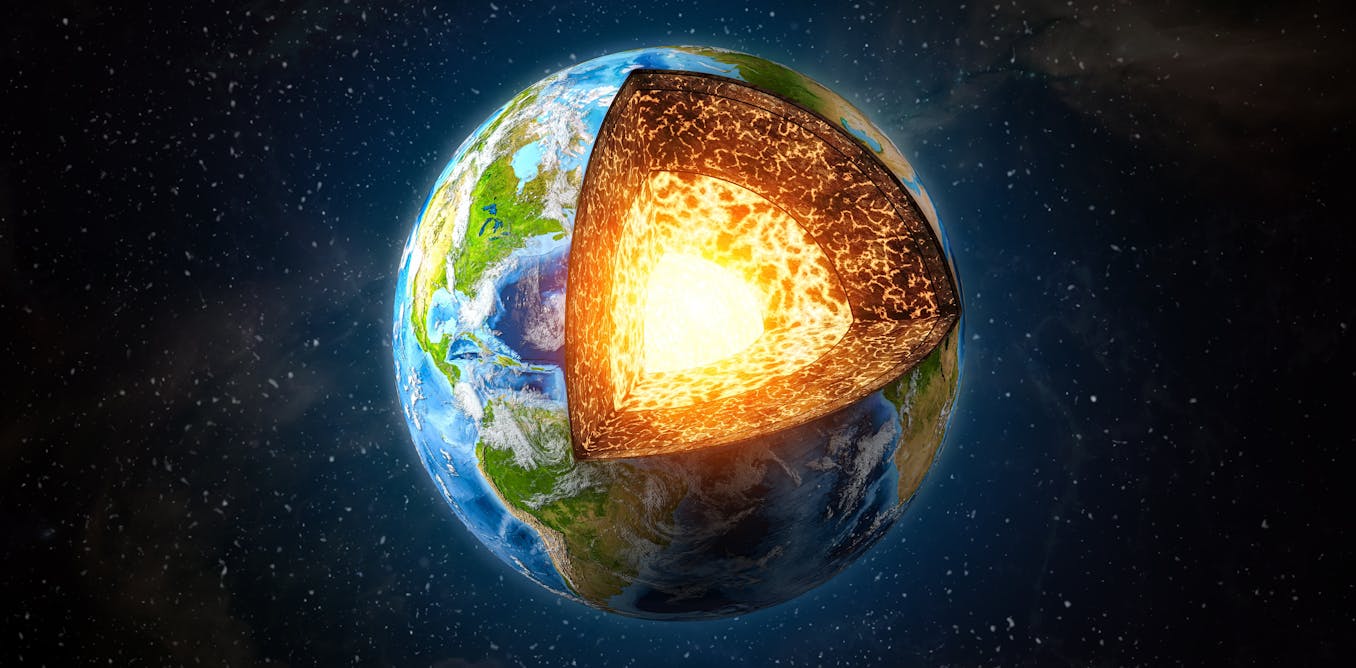
The Earth’s inner core is a total mystery – here’s how we’re starting to solve it
Deep beneath our feet, at a staggering depth of over 5,100km, lies Earth’s inner core — a solid ball of iron and nickel that plays a crucial role in shaping the conditions we experience on the surface. In fact, without it we’d be unlikely to even exist.
But despite its significance, it’s a bit of a puzzle how it formed and developed. We don’t even know how old it is. Luckily, mineral physics is bringing us closer to solving the mystery.
The inner core is responsible for Earth’s magnetic field, which acts like a shield, protecting us from harmful solar radiation. This magnetic field might have been important for creating the conditions that allowed life to thrive billions of years ago.
The Earth’s inner core was once liquid, but has turned solid over time. As the Earth gradually cools, the inner core expands outwards at the surrounding iron-rich liquid “freezes”. That said, it is still extremely hot, at least 5,000 Kelvin (K) (4726.85°C).
This process of freezing releases elements, such as oxygen and carbon, which aren’t compatible with being in a hot solid. It creates a hot, buoyant liquid at the bottom of the outer core. The liquid rises into the liquid outer core and mixes with it, which creates electric currents (through “dynamo action”), which generates our magnetic field.


















